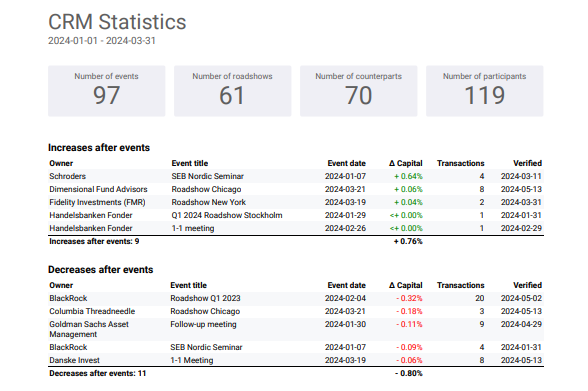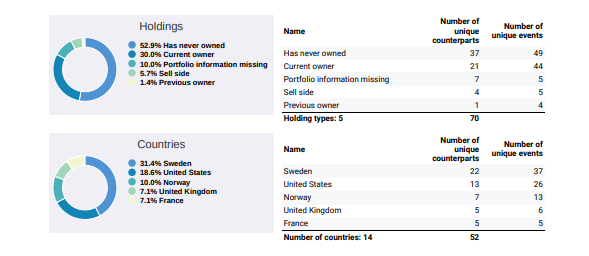When talking about investor targeting, what first comes to mind is proactive action to find completely new investors. These efforts can be well worth their while, and working actively with your potential owners is truly important.

But not all IR departments have the time or the tools to do this in an efficient manner. It is easy to think: why even bother? In the long run, the earnings per share is all that matters.
I actually agree on that last part, but one should not forget that the share price is determined in the short and medium-term, where supply and demand for shares matter quite a bit. And it is in the short and medium-term that shares are traded, providing your real-time currency of financing.
Investor targeting does not have to be seen as a binary practice, where you either do it or you don’t.
Investor targeting does not have to be seen as a binary practice, where you either do it or you don’t. I believe all listed companies should engage in what I call ‘reactive investor targeting’ or targeting existing owners. That means analyzing your existing shareholding to help focus your time and your team’s where it matters most. Below, I present five concrete pieces of advice on how to apply investor targeting to your company’s existing owners.
Identify and work with ‘exploratory positions’
One thing worth your while is to be on the lookout for what I call ‘exploratory positions’. These are common among fund managers when getting to know a company but before deciding whether or not the stock should become a meaningful position. Spending some time reading up on the fund and the manager and then reaching out with an offer for a one-on-one meeting is normally time well spent.
Monitor fund manager changes
The most common reason for an aggressive decrease of a position is when there is a change of fund manager. The new manager will normally want to build up his or her own portfolio, and slumping stocks are especially at risk of getting let go. Spending time with these managers and help them get their own view of the equity story can make a huge difference.
Manage time based on relative action
With existing large owners, it is important to spend the right amount of time on each. These investors should, of course, be valued highly, but the same results can often be achieved with less time spent. The best way of setting the right frequency with these owners is to monitor their action in the share in a digital system with dynamic shareholder ID/share register analysis. It requires some ‘fingertip feel’, but this is an area where time can be saved and used in a more productive manner.
Perform underweight analysis based on size and sector
By using a system with qualitative data on both portfolios and peers, one can pretty easily see existing owners that hold positions smaller than they should, based on what they own in peer companies or companies of similar market cap. These managers are often the ones to prioritize when deciding which meetings to take and which to decline.


Measure changes in ownership rather than the number of meetings in your CRM
For many years, the main way of evaluating the work done by an IR department is the number of meetings taken in a year, comparing it with the last one. Don’t get me wrong – it is all in the numbers in one sense. But when you connect your CRM to qualitative and up-to-date ownership and portfolio data, you can get actionable insights rather than just numbers. Seeing which broker sets up the best meetings, which investors you have met 10 times without them buying a single share and whether meetings with the CEO led to more or fewer increased positions: these all really make a difference.
These are just some ways of engaging in investor targeting in a way that is manageable for most IR teams and that can make a real difference to managing a sound valuation and liquidity in the stock. Because in the short and medium term, the stock market is largely about supply and demand.
Petter Hedborg is CEO of Modular Finance, a market-leading vendor of IR and banking & finance products in the Nordics







